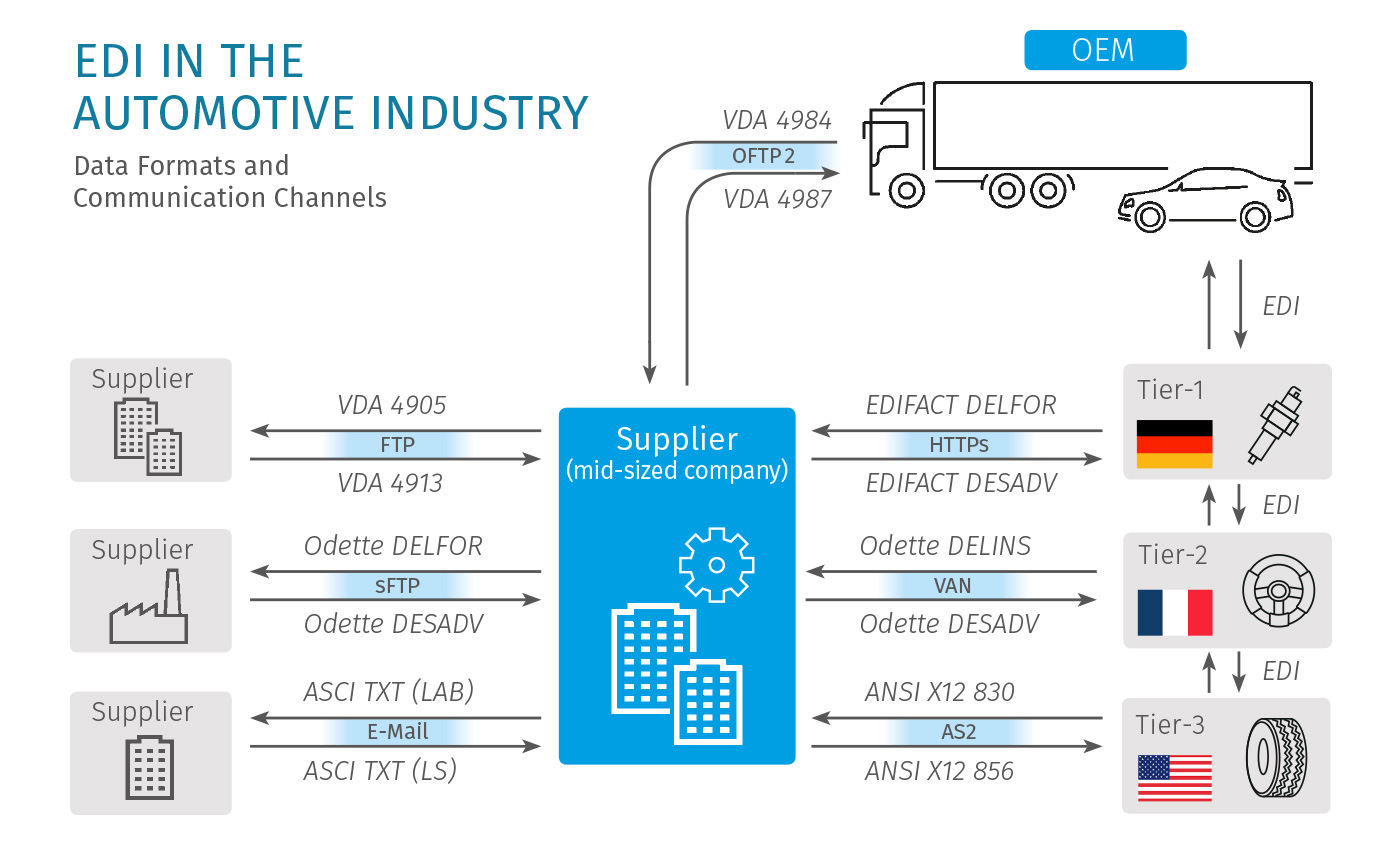Electronic data interchange in the automotive industry
Comprehensive changes will be introduced in 2019 in order to continue fulfilling requirements of a global supply chain.
Given the technical requirements and logistic scope of its international production network, the automotive industry is probably unrivaled in the demands it places on powerful software components for digital networking. For many years, the automotive industry has relied on cross-sector standards when designing lean yet high-performance value creation structures. Not only are the companies involved required to meet just-in-time supply chain demands, but they must also comply with extremely stringent quality and security standards. This in turn requires a flexible EDI solution, which enables both you and your customers to stay up to date with the exacting requirements in the industry. Thanks to more than 30 years of experience in the field, Softzoll experts understand automobile logistics and the requirements these place on a functioning network of partners, and have developed a comprehensive portfolio of solutions to cover a wide range of scenarios. Since the day VDA formats for transmitting business-relevant data were first introduced, requirements have changed considerably. For many years, “classic” VDA formats such as VDA 4905 and VDA 4913 and transport via OFTP1 (OFTP-ISDN) were regarded as the measure of all things and could be deployed virtually universally via numerous exchange partners.
However, as modern supply chains began to grow increasingly complex, it soon became clear that the spectrum of information—once documented as standard—was not in a position to map the ever closer links between the parties involved. The initial response was to define VDA supplementary sets, followed by the ODETTE subset (e.g., DELINS) and certain EDIFACT message types (e.g., DELFOR), which catered to the special requirements of the automotive industry.
Plausibility checks generate automatic error reports for non-valid data (VDA 4987).
However, the latest specification catalogs issued by major market players point in a completely new direction. Grouped under the new VDA guidelines (e.g., VDA 4984 and VDA 4987), new scenarios are now being defined; from a technical point of view, these consist of EDIFACT formats. Changing from the above-listed predecessor versions to these new VDA standards, however, involves far more than the familiar format-based and semantic add-ons. The VDA 4987 standard is an excellent example of this. The real challenge during implementation is not format changes and additional data elements. With regard to mapping logical hierarchies, the VDA 4987 standard also offers a portfolio that important EDI players are unable to map in the form provided.
This post is also available in DE.




